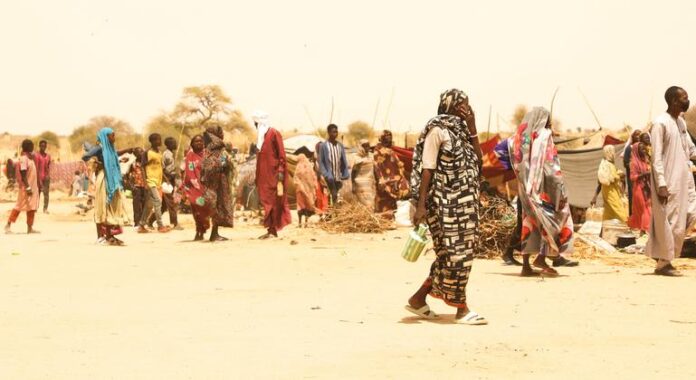Tuesday 21 October Source : © European Union, 2025 – EP
Denmark Leads Europe with Digital Identity Deepfake Law
Copenhagen — Denmark is preparing to adopt a groundbreaking legal framework that would give every citizen the right to control how their face, voice and body are used by artificial intelligence. The proposal, now under parliamentary discussion, could make Denmark the first country in the world to grant individuals full legal ownership of their digital likeness.
The initiative, led by Denmark’s Ministry of Culture, would amend the Danish Copyright Act to include protections against the creation or use of “very realistic digital representations” — commonly known as deepfakes. This legislation seeks to protect people from unauthorised digital reproductions generated by AI, including manipulated videos, cloned voices and synthetic bodies.
A new legal frontier for digital dignity
Under the proposed law, individuals would be able to demand the removal of AI-generated content that misuses their image or voice and seek compensation from those responsible. Parody and satire would remain protected, but realistic imitations without consent could trigger legal action. Online platforms could also face fines if they fail to remove such material once notified.
According to Euronews Next, this proposal would go beyond existing European frameworks such as the EU AI Act and the General Data Protection Regulation (GDPR), treating a person’s likeness as intellectual property. It represents a legal recognition that personal identity in the digital age deserves the same protection as creative work.
Restoring control in the age of AI manipulation
Deepfakes have become increasingly sophisticated, blurring the line between authentic and fabricated content. From political disinformation to online fraud and revenge pornography, the misuse of synthetic media has sparked global concern. Danish lawmakers say the new legislation aims to restore “digital dignity” and help citizens reclaim control over how their identity appears in AI-generated contexts.
“Your face, your rights,” The Times summarised in its coverage of the initiative. Legal experts see it as a potential model for other European nations looking to close the gap between technological innovation and human rights.
Global precedent for AI ethics and human rights
While Denmark’s proposed framework is still under debate, it has already influenced discussions in Brussels and other European capitals. The law could position Denmark as a leader in AI ethics and digital rights, complementing the EU’s broader strategy on trustworthy AI.
By recognising the face and voice as personal intellectual property, Denmark’s initiative bridges two domains often treated separately — privacy and copyright — and reframes identity as something legally ownable in the digital sphere. If enacted, it could set a global precedent, empowering individuals to decide who may use or replicate their likeness, and under what conditions.
As deepfake technology continues to evolve, Denmark’s move stands as a bold assertion of human agency in the algorithmic age — a reminder that technology must serve people, not the other way around.
Denmark
Deepfake
AI law
Digital identity
Copyright protection
Artificial intelligence
EU AI Act
Data privacy
Technology ethics
Europe
Press release – Opening: 20-23 October plenary session
President Metsola opened the 20-23 October plenary session in Strasbourg. Source : © European Union, 2025 – EP
Gaza: Aid efforts continue as UN teams begin clearing up to 60 million tonnes of debris
“We are encouraged that the parties have reaffirmed their commitment to implementing the ceasefire in Gaza and congratulate him constant efforts of mediators,» declared UN spokesperson, Stéphane Dujarric, during the regular press briefing in New York.
“However, we remain concerned about all acts of violence in Gaza and the reported attacks and strikes that took place yesterday. »
Mr. Dujarric urged all parties to honor their obligations and avoid any action that could lead to a resumption of hostilities, reiterating the Secretary-General’s call for the release of the remains of all deceased hostages.
Over the weekend, Humanitarian Affairs Chief Tom Fletcher concluded his visit to Gaza, where he met with aid workers and inspected UN-supported projects, including a child nutrition center, a hospital and a road clearance operation.
Debris removal in progress
In Gaza City, the United Nations Development Program (UNDP) has launched a major debris removal operation – the first phase of a comprehensive debris management plan aimed at restoring access to essential services such as hospitals and schools.
“The rubble represents a major challenge in Gaza, where the estimated amount is between 55 and 60 million tonnes,» said Jaco Cilliers, UNDP representative in Palestine.
The UN agency is taking a vital first step by clearing roads and recycling materials to pave new access roads and temporary facilities.
Dozens of excavators and other vehicles have been deployed along Al-Jalaa Street, where UNDP says it is working around the clock to open roads that have been blocked for months.
“It is a very arduous process and it will take many years to complete it“, warned Mr. Cilliers.
Opening of emergency passages
UN humanitarians also reported progress in delivering aid under the ceasefire, with the UN agency helping Palestinian refugees (UNRWA) expansion of temporary learning spaces and partners resuming food parcel distributions in Deir al-Balah and Khan Younis.
“During the weekend, we and our partners continued to collect aid from the Kerem Shalom/Karem Abu Salem and Kissufim passages. This included postpartum and hygiene kits, medical supplies, fuel, water and food,” Mr Dujarric said.
He added that on Sunday, for the first time, Israeli authorities authorized the UN to deploy observers at the Kissufim crossing.
“This is of course a welcome development, as it provides us with much-needed visibility into this segment of the pipeline,” added Mr. Dujarric.
Originally published at Almouwatin.com
Women still largely excluded from peace processes
It is one of the main conclusions of the UN Secretary-General’s annual report on women, peace and security (WPS) published on Monday.
THE report highlights the role women play as peacemakers, describes how conflict affects women in general, and outlines the UN Secretary-General’s goals for the key agenda.
“Women and girls are being killed in record numbers, excluded from peace tables and left unprotected as wars multiply.. Women do not need more promises, they need power, protection and equal participation,” commented Sima Bahous, Executive Director of UN Women.
25 years later
This year marks the 25th anniversary of the FPS agenda and Security Council resolution 1325a historic decision adopted by the international community at the turn of the century, affirming the importance of women’s participation in conflict prevention and peace processes.
Since its adoption, there has been a growing consensus, supported by concrete examples – from Colombia to Liberia and the Philippines – that women’s participation makes peace agreements more likely and more durable, according to the report.
But the problems persist. Implementing WPS goals requires funding, and since last year’s report, women-led organizations need more funding because conflicts and crises put them at risk.
Women still underrepresented
Women can play a decisive role in conflict mediation. As part of negotiations to finally end Yemen’s long civil war, women leaders managed to negotiate access to natural resources.
Data collected from 2020 to 2024 revealed that the representation of women as negotiators, mediators and signatories in peace processes is far below the target set by the UN.
Last year, women made up only seven percent of negotiators on average worldwide, and nearly nine out of ten negotiation tracks included no female negotiators at all, the report says.
The women were slightly more represented in mediation rolesan average of 14 percent, but two-thirds of mediation efforts did not include women.
In the year open debate on the WPS agenda earlier this month, the UN Secretary-General António Guterres warned that while progress has been made over the past quarter century, “the gains are fragile and – very worryingly – being reversed.”
“Broken promises”
Presenting the report on Monday, UN Women Deputy Executive Director Nyaradzayi Gumbonzvanda highlighted that although civilian casualties among women and children have quadrupled compared to the previous two-year period – and sexual violence has also increased – many women’s organizations working on the front lines are scaling back or closing their doors due to lack of funding.
“These numbers tell a story, that of broken promises“, she said.
Sarah Hendriks, director of the agency’s policy division, warned that if current trends continue, progress made on women’s rights over the past two decades risks being erased.
She reiterated the report’s call for binding targets and quotas for women’s participation, accountability for gender-based crimes and violence in conflict, and other recommendations.
“The evidence is clear: when women lead and their organizations are resourced, peace is more possible, recovery is faster and societies are stronger,” she concluded.
Originally published at Almouwatin.com
World news in brief: update on aid to Sudan, the death penalty in Kyrgyzstan, health crises in the DRC and Haiti
The warning from the UN aid coordination office, OCHAfollows continuous and repeated attacks against El Fasher, besieged by rapid support paramilitary forces.
Ten days ago, the Daraja Oula neighborhood in the Darfur city was targeted by a drone strike, killing at least 57 civilians displaced by the war.
Nearly 30 months of war in Sudan have left almost two out of three people in urgent need of humanitarian aid, including 16 million children.
Famine has been confirmed in various parts of the country and millions of people remain at risk of starvation.
Meanwhile, epidemics are worsening the crisis, alongside worsening climate shocks, according to OCHA, with more than 3,400 deaths from the ongoing cholera epidemic since July 2024 and more than 120,000 suspected cases today.
The journey continues
The International Organization for Migration (IOM) estimates that more than 3,000 people were newly displaced in North Darfur last week, including 1,500 from El Fasherthe state capital under siege, and 1,500 others from Abu Gamrafollowing the resumption of fighting.
Tensions are also rising sharply in the Kordofan region. Nearly 1,000 people were moved from the town of Lagawa, in West Kordofan State, due to increased insecurity, warned UN spokesperson Stéphane Dujarric.
Meanwhile, in Southern Kordofan, the town of Dilling and the state capital, Kadugli, remain under siege, with supply routes cut and shortages of basic goods worsening by the day.
“Civilians across Sudan continue to bear the brunt of this unrelenting violence,” Mr. Dujarric said.
“Despite the many challenges, our humanitarian colleagues continue to provide lifesaving assistance to displaced people in areas where we and our partners can safely access. »
Kyrgyzstan: reinstating the death penalty would violate international law, warns Türk
On Monday, the United Nations High Commissioner for Human Rights called the authorities in Kyrgyzstan not to reintroduce the death penalty following the rape and murder of a young girl last month.
Volker Türk warned that this would constitute a serious violation of international law.
Kyrgyzstan stopped using the death penalty in 1998, then permanently banned its use in law in 2010, when it ratified the Second Optional Protocol to the Convention. International Covenant on Civil and Political Rights (ICCPR).
Threat of withdrawal from the treaty
According to Mr. Türk’s office, the Kyrgyz authorities wish to modify the Constitution to allow the use of the death penalty, particularly in cases of child rape.
They also proposed that the country withdraw from the optional protocol.
These rights “cannot be taken away, whatever the justification put forward,” declared the High Commissioner.
He added that no justice system is perfect and if the death penalty was reintroduced, it would ultimately lead to the death of innocent people at the hands of the state.
Health crisis in DR Congo
OCHA reported on Monday that health systems in North and South Kivu, Democratic Republic of Congo (DRC), have effectively collapsed.
About 85 percent of health facilities in the volatile eastern region, where armed groups dominate, are experiencing drug shortages, while almost 40 percent have experienced an exodus of medical staff, further weakening the delivery of essential health services.
In North Kivu alone, UN partners reported that a third of all health facilities in the province’s conflict zones have been destroyed, looted or abandoned, leaving millions of people with extremely limited access to health care.
Worse still, the collapse of health systems is compounded by deadly epidemics.
“Since the start of the year, health partners have recorded more than 8,600 cases of cholera, 8,000 cases of monkeypox and more than 10,500 cases of measles,” said UN spokesperson Stéphane Dujarric.
Immediate action is needed
Without urgent action, the UN estimates that 6,000 preventable deaths could occur by the end of the year.
Currently, the DRC Humanitarian Needs and Response Plan is only 16 percent funded, with $410 million received. The UN desperately needs an additional $6 million to purchase essential supplies and maintain these vital services.
In more positive health news, DRC health authorities have released the last patient from the last Ebola virus outbreak, marking what the World Health Organization described as “an important step.”
A total of 19 patients have recovered from the disease, the UN health agency said. No new cases have been reported since September 25. A total of 64 cases (53 confirmed and 11 probable) have been reported since the outbreak was declared on September 4 in Kasai province.
Increase in cholera in Haiti
Now for another hotspot in the crisis and the impact of Haiti’s ongoing gang war: OCHA is warning of a resurgence of cholera in the Ouest department over the past month.
Health authorities reported new cases in the commune of Pétion-Ville, after 11 weeks without any cases.
In a single week, between October 5 and 11, 139 suspected cases were recorded, including more than 20 laboratory confirmed. Five deaths were also reported.
Pétion-Ville, as well as parts of the capital Port-au-Prince, including the commune of Cité-Soleil, remain on red alert, amid concerns about the spread of cholera in sites hosting internally displaced people.
Haiti’s Ministry of Health, with support from the UN-backed Pan American Health Organization (WHO) and its humanitarian partners, has intensified disinfection campaigns, community awareness activities and the distribution of chlorine, drinking water and hygiene kits in the most affected areas.
Originally published at Almouwatin.com
Lives transformed: stories from 80 years of UN work around the world
The “Shared Lives, Shared Future” exhibition features stories from nearly 200 countries and reflects how the spirit and mission of the United Nations has evolved over time.
From humanitarian aid and education to development and sustainability, it features real-life stories of individuals and communities whose lives have been transformed by the UN mission.
Here are some of their personal thoughts.
Mariam dreams of the return of UNRWA schools
Mariam, former student from the occupied Palestinian territory
Before the current conflict, UNRWA the United Nations agency that helps Palestinian refugees has operated schools throughout the Gaza Strip, providing education to around 300,000 children. A daughter, Mariam, who studied in a UNRWA before the war, said: “We miss the UN schools we went to. I want life to go back to the way it was.”
Today, UNRWA, in cooperation with other UN agencies and partners, is providing lifesaving assistance amid a devastating humanitarian crisis.
Radwa, a Sudanese refugee, makes humanitarian aid a life project
Chad. Thousands of Sudanese refugees continue to flee across the border
Since the outbreak of war in Sudan in April 2023, nearly 12 million people have been forcibly displaced within and outside the country, including 878,000 fleeing to neighboring Chad alone.
The United Nations Refugee Agency (UNHCR) provides them with shelter, food, medical care and education, as well as safe resettlement from insecure border areas.
Among them is Radwa, who fled Sudan to Chad. Combining her entrepreneurial skills with financial assistance from UNHCR, she started a small home-based baking business in the Farchana refugee camp.
“I like to help people because everyone needs support. That’s why I support my fellow refugees so that we can grow together and no one is left behind. It is important to stand by our brothers and sisters, to help them heal,” she said.
Young Yemeni girl escapes early marriage thanks to UN support
At fifteen, Afaf was faced with an impossible choice to help her family: find a job or marry a 40-year-old man.
“At 15, I was pressured to get married, but the UN helped me get through it,” she said.
In a “safe space” supported by the United Nations Population Fund (UNFPA), she received advice and training. The marriage was ultimately annulled.
Lebanese firefighter faces danger with UN equipment
As part of its emergency response programs, the United Nations Development Program (UNDP) has provided essential equipment to firefighters in Beirut, in the Lebanese capital, making firefighters’ missions safer and more efficient.
Layal, herself a firefighter, said: “The new equipment provided by the UN greatly improves our safety and preparedness. »
From drugs to cabbage fields
With the support of the United Nations Office on Drugs and Crime (UNODC), Zahoor and thousands of other Afghan farmers transitioned from opium to legal agriculture, transforming the land into a source of hope and sustainable income. It also helps make the world safer from drugs.
With the support of the United Nations Office on Drugs and Crime (UNODC) Afghan farmer Zahoor and thousands of others have transitioned from opium cultivation to legal cultivation, transforming their land into a source of hope and sustainable income, also contributing to a safer, drug-free world.
“With the support of the UN, I moved from growing opium to growing cabbage. I received training in modern agriculture and was given pesticides to protect my crops,” Zahoor said.
Eco-industrial parks, a UN partnership for sustainable production
Manager of Liudmyla Ukraine Eco-Industrial Park
Eco-industrial parks bring businesses together to improve their performance and sustainability. The United Nations Industrial Development Organization’s Global Eco-Industrial Parks Program (UNIDO) supports these parks throughout Ukraine with policy support, capacity building and technical assistance.
Liudmyla, director of an eco-industrial park in Ukraine, told the UN that “since 2020, we have been actively cooperating with the UN on energy-saving projects, which has helped us reduce our gas and electricity consumption and move towards more energy-efficient production.”
Innovative Water Solutions in Malaysia
Rabiah works at the Johor Ports Authority, which partnered with the UN for Trade and Development (UNCTAD) to design and implement a water-saving system. UNCTAD’s global network of certified port managers advances best practices, strengthens South-South cooperation and drives progress towards the Sustainable Development Goals (SDGs).
Rabiah works at the Johor Port Authority in Malaysia, which has partnered with the United Nations Conference on Trade and Development (UNCTAD) to design and implement a water saving system.
The UNCTAD Port Management Network promotes best practices, supports South-South cooperation and fosters progress towards Sustainable Development Goals.
“With the support of the UN, we have implemented a solution that saves 10 million liters of fresh water every year,” Rabiah reported.
The exhibition will also be presented in various locations around the world and is accessible online.
Originally published at Almouwatin.com
World News in Brief: Sudan aid update, Kyrgyzstan death penalty, health crises in DRC, Haiti
The warning from the UN aid coordination office, OCHA, follows ongoing and repeated attacks on El Fasher, which is under siege by the paramilitary Rapid Support Forces.
Ten days ago, the Darfuri city’s Daraja Oula neighbourhood was targeted in a drone strike, killing at least 57 civilians who’d been displaced by the war.
Almost 30 months of war in Sudan have left nearly two in three people in dire need of humanitarian assistance, including 16 million children.
Famine has been confirmed in various parts of the country, and millions remain at risk of starvation.
Meanwhile, disease outbreaks are compounding the crisis, alongside worsening climate shocks, OCHA says, with more than 3,400 deaths from the ongoing cholera outbreak since July 2024 and over 120,000 suspected cases today.
Displacement continues
The International Organization for Migration (IOM) estimates that more than 3,000 people were newly displaced in North Darfur just last week, including 1,500 from El Fasher, the besieged state capital, and another 1,500 from Abu Gamra, following renewed fighting.
Tensions are also rising sharply in the Kordofan region. Nearly 1,000 people were displaced from Lagawa town in West Kordofan State on Saturday, due to heightened insecurity, warned UN Spokesperson Stéphane Dujarric.
Meanwhile, in South Kordofan, the town of Dilling and the state capital Kadugli remain under siege, with supply routes cut off and shortages of basic goods worsening by the day.
“Civilians across Sudan continue to bear the brunt of this relentless violence,” said Mr. Dujarric.
“Despite the numerous challenges, our humanitarian colleagues continue to provide vital assistance to displaced people in areas that we and our partners are able to safely access.”
Kyrgyzstan: Death penalty reintroduction would violate international law, Türk warns
The UN High Commissioner for Human Rights on Monday called on the authorities in Kyrgyzstan not to reintroduce the death penalty following the rape and murder of a girl there last month.
Volker Türk warned that this would be a serious breach of international law.
Kyrgyzstan stopped using capital punishment in 1998 and then permanently prohibited its use in law in 2010, when it ratified the Second Optional Protocol to the International Covenant on Civil and Political Rights (ICCPR).
Treaty withdrawal threat
According to Mr. Türk’s office, the Kyrgyz authorities want to amend the Constitution to allow the use of the death penalty for cases including the rape of a child.
They have also proposed that the country withdraws from the optional protocol.
These rights “cannot be taken away, no matter the justification that is offered”, the High Commissioner said.
He added that no justice system is perfect, and if the death penalty were reintroduced, it would in time lead to the death of innocent people at the hands of the State.
Health crisis in DR Congo
OCHA on Monday reported that health systems across North and South Kivu in the restive Democratic Republic of Congo (DRC) have, in effect, collapsed.
Around 85 per cent of health facilities in the volatile eastern region where armed groups hold sway, are experiencing medicine shortages, while nearly 40 per cent have seen an exodus of medical staff – further weakening the delivery of essential health services.
In North Kivu alone, UN partners reported that a third of all health facilities in the province’s conflict zones have been destroyed, looted, or abandoned, leaving millions with extremely limited access to healthcare.
To make matters worse, the collapse of health systems is compounded by outbreaks of deadly epidemics.
“Since the beginning of the year, health partners have recorded over 8,600 cases of cholera, 8,000 cases of monkeypox, and more than 10,500 cases of measles”, said UN Spokesperson Stéphane Dujarric.
Immediate action needed
Without urgent action, the UN estimates that 6,000 preventable deaths could occur between now and the end of the year.
As of now, the Humanitarian Needs and Response Plan for the DRC is just 16 per cent funded, with $410 million received. The UN critically needs an additional $6 million to procure essential supplies and maintain these life-saving services.
In more positive health news, health authorities in DRC discharged the final patient from the latest Ebola virus outbreak, marking what the World Health Organization described as “an important milestone.”
A total of 19 patients have recovered from the disease, said the UN health agency. No new cases have been reported since 25 September. In total, 64 cases (53 confirmed and 11 probable) have been reported since the outbreak was declared on 4 September in Kasai Province.
Cholera surge in Haiti
To another crisis hotspot now and the impact of ongoing gang warfare in Haiti: OCHA is warning of a resurgence of cholera in the Ouest department over the past month.
Health authorities have reported new cases in the commune of Pétion-Ville, following 11 weeks with no cases showing up.
In just a single week between 5 and 11 October, there were 139 suspected cases recorded, including more than 20 laboratory-confirmed. Five deaths were also reported.
Pétion-Ville, as well as parts of the capital Port-au-Prince, including the commune of Cité-Soleil, remain on red alert, amid concerns over cholera spreading at sites hosting internally displaced.
Haiti’s Ministry of Health, with support from the UN-backed Pan American Health Organization (WHO) and humanitarian partners, has stepped up disinfection campaigns, community awareness activities, and the distribution of chlorine, safe water and hygiene kits in the areas that are most impacted.
Co-Chairs Conclusions on Strengthening Cross-Regional Security and Connectivity
Co-Chairs Conclusions on Strengthening Cross-Regional Security and Connectivity by the High Representative for Foreign Affairs and Security Policy/Vice-President of the European Commission, Kaja Kallas, Commissioner for Enlargement, Marta Kos, and Commissioner for International Partnerships, Jozef Síkela.
State of Europe’s environment not good: threats to nature and impacts of climate change top challenges
Significant progress has been made in reducing greenhouse gas emissions and air pollution, but the overall state of Europe’s environment is not good, especially its nature which continues to face degradation, overexploitation and biodiversity loss. The impacts of accelerating climate change are also an urgent challenge, according to the European Environment Agency’s (EEA) most comprehensive, ‘sta…








